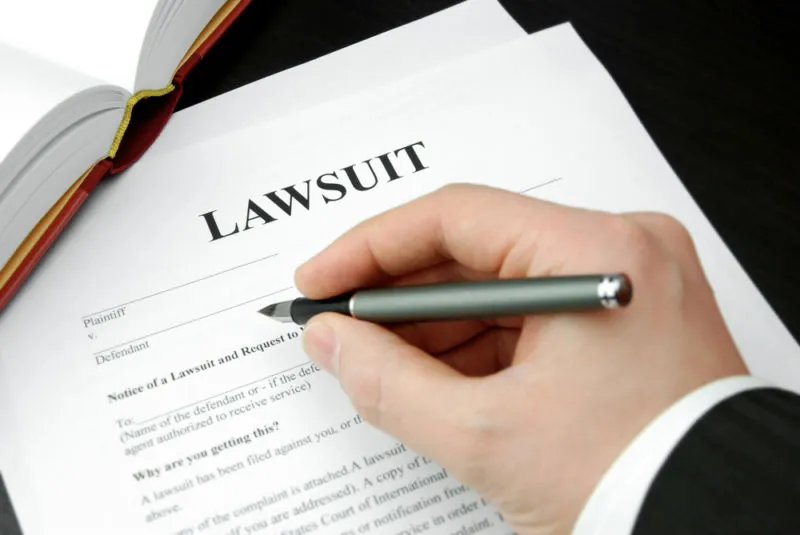When you entrusted your legal case to a lawyer, you expected diligent, professional advocacy. But what happens when your attorney’s mistakes or negligence leave you worse off? If you’re considering legal action, understanding how to file a malpractice lawsuit against your attorney could be critical to righting those wrongs or recovering your losses.
This comprehensive guide explains everything you need to know about starting a malpractice claim, proving attorney negligence, and maximizing your odds of success—using real examples and plain language advice to empower you throughout the process.

Understanding Legal Malpractice: When Can You Sue Your Attorney?
Legal malpractice occurs when an attorney fails to perform their professional duties to the standards required by law, and this lapse causes harm to a client. Filing a lawsuit against your lawyer is not just about dissatisfaction with case results; you need to show that your attorney’s actions fell below the accepted standard of care for the profession, resulting in direct financial or legal harm.
Common Types of Attorney Malpractice
- Missing crucial filing deadlines
- Failing to show up at court hearings
- Acting with a conflict of interest
- Settling a case without your permission
- Providing wrong or negligent legal advice
- Mishandling client funds
“Just because your lawyer lost your case does not mean they committed malpractice. You must prove the attorney’s errors directly caused you harm and that another lawyer would likely have achieved a better result.”
Should You File a Malpractice Lawsuit Against Your Attorney?
Before diving into the legal process, ask yourself a few questions:
- Did my lawyer act in a way that another competent attorney wouldn’t?
- Did I suffer a loss or injury directly because of my lawyer’s actions or inaction?
- Would the outcome have been different with proper representation?
- Have I tried resolving my concerns directly or through a complaint to the state bar association?
If you answered “yes” to the first three, you may have grounds for a legal malpractice claim.
Key Elements of a Legal Malpractice Lawsuit
To file a malpractice lawsuit against your attorney and win, you’ll typically need to prove four critical elements:
| Element | What It Means | Practical Example |
|---|---|---|
| Duty | The attorney owed you competent, ethical representation | Signed engagement/agreement |
| Breach | The lawyer failed to act as a reasonably prudent attorney would | Missed a deadline or gave faulty advice |
| Causation | The attorney’s breach directly caused you damages | Lost your case due to missed filing |
| Damages | You suffered actual, measurable harm (often financial) as a result | Loss of a legal claim, missed settlement, or monetary penalty |
Real-Life Example
Suppose you were injured in a car accident and hired a lawyer to file your personal injury claim. If your attorney failed to file the lawsuit before the statute of limitations and your case was dismissed—causing you to lose your chance at compensation—you may have a strong legal malpractice case.
How to File a Malpractice Lawsuit Against Your Attorney
Step 1: Secure Your Files and Documentation

Request a full copy of your case files and retain all written communications (emails, letters, phone call logs, fee agreements, billing statements, and any relevant court records). This documentation is crucial for reviewing your attorney’s conduct and for your new lawyer to assess your claim.
Step 2: Consult a Legal Malpractice Attorney

Seek out a lawyer who specifically handles attorney malpractice lawsuits. Most will offer a free or low-cost initial consultation to evaluate the viability of your claim. Bring all your documentation and be open about your case history—including your interactions with the previous attorney. Legal malpractice cases are complex; an experienced lawyer can assess your chance of success and guide you on specifics for your state or jurisdiction.
Step 3: Assess Whether the Attorney’s Conduct Qualifies as Malpractice
Not every mistake rises to malpractice. Your new lawyer will help clarify whether the prior attorney’s actions meet the criteria for professional negligence, such as:
- Failing to act competently
- Acting in self-interest above yours
- Mishandling funds
- Breaching your confidentiality
Step 4: Gather Additional Evidence
Build a strong evidentiary record. Collect:
- Correspondence showing what the attorney agreed to do
- Evidence of missed deadlines, lost filings, or contradictory actions
- Records of any financial loss suffered by you as a result
Practical tip: Witness statements or expert opinions can further prove your previous attorney’s negligence directly impacted your outcome.
Step 5: Draft and File the Malpractice Complaint
With the guidance of your new attorney, file a formal complaint in the appropriate court. This complaint spells out the attorney’s errors, specifies your damages, and outlines the causal link between the two. Each state or jurisdiction may have unique requirements for format, filing fees, or served documents, so rely on your legal malpractice attorney’s expertise here.
Remember, in most places, you must file your case within a specific statute of limitations—often between 1-3 years after discovering the harm.
Step 6: Serve the Defendant and Prepare for Litigation
After you file, the defendant (your former attorney) must be officially notified of the complaint. This “service of process” is formal and essential. Litigation then proceeds with discovery, depositions, and possibly settlement discussions. While many malpractice cases settle out of court, you should be prepared for trial.
Can You Sue Your Lawyer for Lying or Incompetence?
Yes, but you’ll need to prove their conduct was both unethical and led to direct financial damage. Examples include lawyers misleading you about key facts or failing to disclose conflicts of interest. Most states also allow you to file complaints with a disciplinary board, which may censure or suspend the attorney even if you don’t pursue damages.
Legal Malpractice Lawsuit Process at a Glance
| Step No. | Process |
|---|---|
| 1 | Gather all case-related documentation |
| 2 | Consult with a legal malpractice attorney |
| 3 | Assess if your case qualifies as attorney malpractice |
| 4 | Collect supplementary evidence |
| 5 | Draft, file, and serve your malpractice complaint |
| 6 | Proceed through the litigation or settlement process |
| 7 | Follow through on court or settlement outcomes |
Common Defenses Raised by Attorneys in Malpractice Suits
- Claiming no attorney-client relationship existed
- Arguing they exercised reasonable judgment (not mere error)
- Asserting client’s own actions caused the harm
- Citing expiration of statute of limitations
Your legal malpractice attorney will anticipate these defenses and help you build a case that directly addresses them.
Frequently Asked Questions About Attorney Malpractice Claims

What if My Lawyer Simply Lost My Case?
A disappointing result isn’t enough. You must show that your lawyer’s substandard actions—not just the loss itself—led to specific harm or loss of opportunity.
Can You Sue for Emotional Distress?
Generally, legal malpractice cases focus on financial or tangible loss. Pure emotional harm, without provable financial damage, is rarely awarded compensation.
What Kind of Compensation Can You Expect?
If successful, you can seek compensation for what you lost as a direct result of attorney negligence. This may include lost settlement values, the value of dismissed claims, and sometimes consequential damages arising from the bad legal outcome.
Practical Examples of Legal Malpractice Cases
1. Missed Deadlines
A lawyer fails to file a personal injury lawsuit before the statute of limitations expires. The client loses the right to sue and any chance of compensation. The lawyer may be found liable for the full amount the client would likely have recovered.
2. Conflict of Interest
An attorney represents two parties whose interests directly oppose each other and hides this conflict from one of the clients. If the client loses money as a result, that could form the basis of a successful malpractice case.
3. Mishandling Client Funds
A lawyer steals or mismanages client money held in trust for settlement or other purposes. This is clear legal negligence and a breach of fiduciary duty, resulting in monetary compensation and sometimes punitive damages.
Key Tips: What to Do Immediately If You Suspect Attorney Malpractice
- Act Quickly: Delay can limit your legal options due to statutes of limitation.
- Retrieve All Your Files: Don’t rely on your previous lawyer to provide records later.
- Document Everything: Write down your recollections, retain emails, and keep track of services promised but not delivered.
- Seek a Qualified Legal Malpractice Attorney: Malpractice cases are technical—work with a specialist.
Legal Malpractice vs. an Ethics Complaint
If your primary issue is unethical behavior (fraud, lying, conflict of interest), you also may file a grievance with your local or state bar. This can lead to discipline or suspension for the attorney—sometimes alongside a civil malpractice lawsuit for damages.
Sample Outline of a Legal Malpractice Complaint
A typical legal malpractice lawsuit contains:
- Parties Involved: Names and addresses of both client (plaintiff) and attorney (defendant)
- Jurisdiction: Court and location where the suit is filed
- Allegations: How the attorney breached professional responsibilities
- Damages: Itemization of losses due to attorney’s errors
- Signature: Plaintiff’s signed declaration of the complaint’s validity
Limitations & Challenges in Suing Your Attorney
- Malpractice lawsuits are hard to win; success rates are lower than ordinary civil suits.
- You typically need another attorney to act as an expert witness, to testify that your prior lawyer breached the standard of care.
- Courts require you to show that you would have won, or achieved a better outcome, “but for” your lawyer’s negligence—this is called the “case within a case” hurdle.
Taking Action: Your Next Steps
- Research and contact qualified legal malpractice attorneys
- Organize all documents and evidence of your original legal matter and attorney’s conduct
- Consult specialists in legal malpractice for actionable prospects
- Prepare for a thorough, sometimes lengthy, process—but know that standing up for your rights is worthwhile
Conclusion: Empower Yourself When Your Attorney Fails You
Understanding how to file a malpractice lawsuit against your attorney is empowering. While the process is rigorous, justice and compensation are possible when lawyers fall short of their professional duties. If you suspect legal malpractice, act quickly, document your case, consult the right experts, and pursue all remedies available to restore your rights and recoup losses.
For most, the first real step is a conversation with a skilled legal malpractice attorney. Don’t let confusion or intimidation stop you from seeking justice—take control and protect your interests with knowledge and expert support.